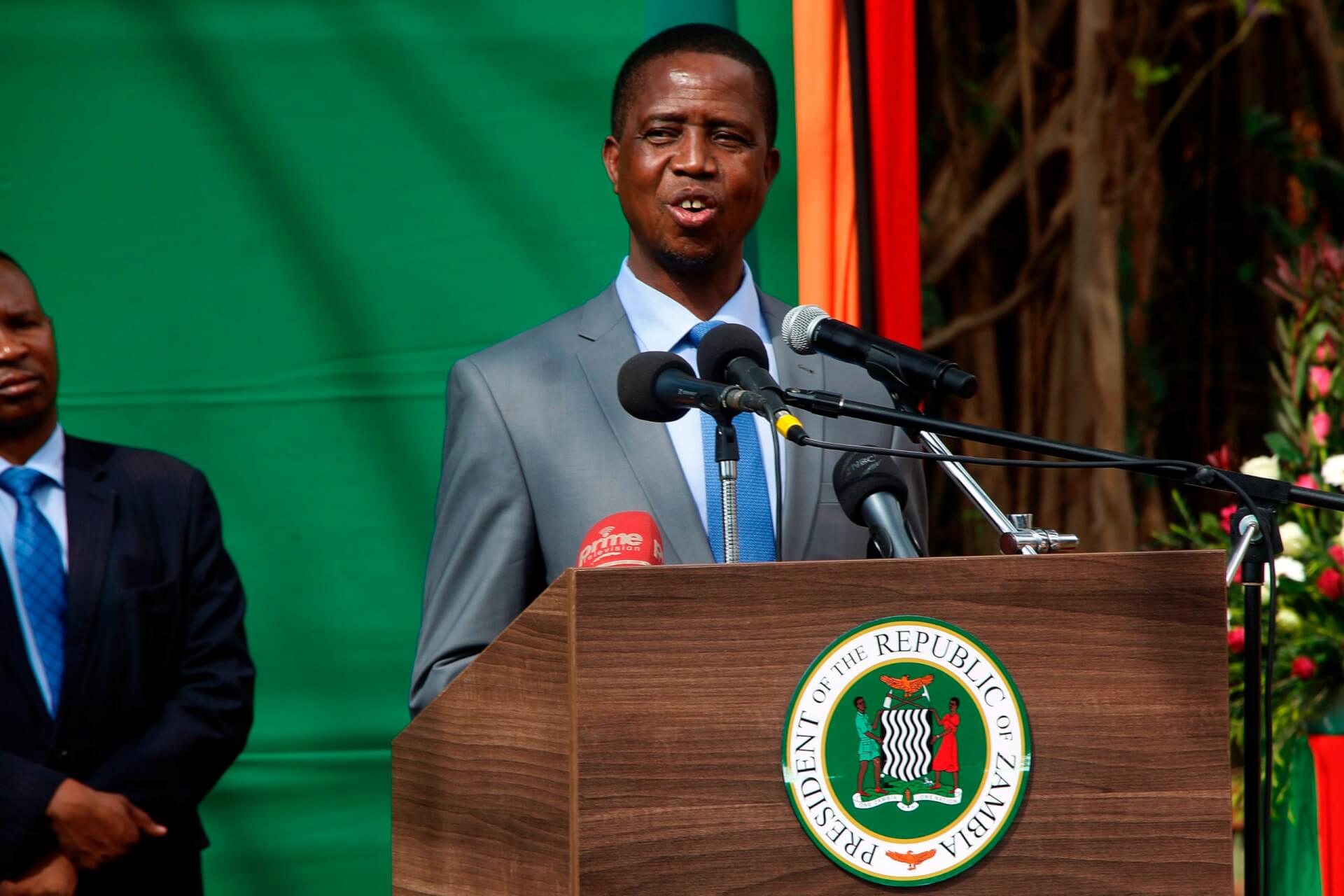A little less than a year before Zambia’s general elections in August 2021, incumbent president Edgar Lungu has already begun to lay the groundwork to extend his rule by amending the constitution and eliminating the voters’ register.
At present, the constitution allows for a second ballot between the two candidates who receive the highest number of votes if neither secures a majority in the first round. However, in order to consolidate his power and ensure that the Presidency does not end in the hands of an opponent, Lungu is seeking to amend the constitution by allowing a coalition government to be formed after the first ballot to ensure that a majority government is instated without having a second vote.
This amendment would favor Lungu and the ruling party, Patriotic Front (PF), particularly given that he only secured 50.3% of the votes in the 2016 election, which was a little too close for comfort. Therefore, it appears that Lungu foresees another closely fought contest in which he may have to form a coalition government in order to ensure a majority government and keep the opposition party, the United Party for National Development (UPND), away from power.
Lungu has also sought to dissolve the current voters’ list, which has over six million people registered, so that he can establish a new one that holds a more favorable view of him. In fact, data from the Electoral Commission of Zambia (ECZ) reveals that voter turnout is generally higher in areas where UPND holds greater support.
The ECZ has been updating the voter register each year since 2005. However, Lungu is asking them to abolish the existing list entirely and replace it with mobile registration. However, given that this electronic system has not trialled before and that there are no guidelines governing its establishment and operation, it is heavily susceptible to “misuse and fraud” by the ruling party.
Lungu first came to power in the 2015 presidential by-election after ex-President Michael Sata’s untimely death while in office. He was then re-elected in 2016 after beating UPND’s Hakainde Hichilema. In the run-up to next year’s election, local media is rife with reports that Lungu is plotting to arrest Hichilema on unfounded charges of corruption.
In fact, after the 2016 election, in which Hichilema secured 47.67% of votes, the opposition UPND claimed that the electoral commission had conspired with the Lungu administration to “deliberately reduce” votes for the opposition candidate. Protests soon followed, with the UPND calling on the constitutional court to “declare the results a nullity”.
However, these demonstrations ultimately came to nothing and now Lungu is set to lead the country even further away from the path to democracy by upending crucial pillars that act as a guarantor to legitimacy and credibility.
Zambia President Seeks to Amend Constitution & Abolish Voters’ List Ahead of 2021 Election
Edgar Lungu only secured 50.3% of the votes in the 2016 election, which was a little too close for comfort. He is now looking for ways to virtually ensure that he maintains his incumbency.
September 29, 2020

Zambian President Edgar Lungu SOURCE: DAWOOD SALIM/AFP VIA GETTY IMAGES
